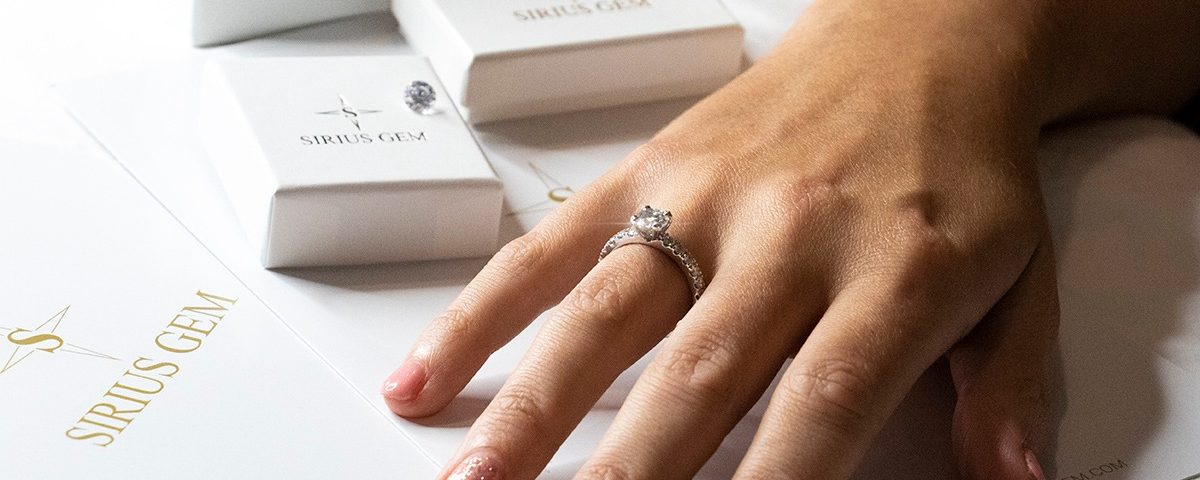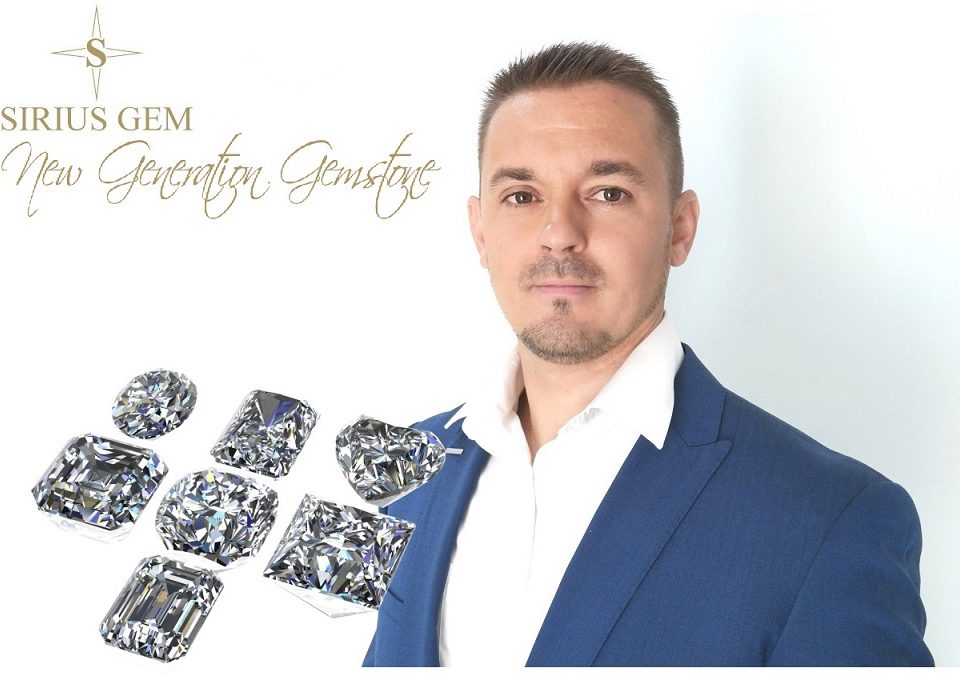Sirius Gems & Jewellery Tips

Sirius Gem Sizes Guide
22.11.2019
A few words about the owner & company
26.11.2019Make your Sirius gems & jewellery last forever
The rise of the Sirius gems in engagement rings, necklaces, earrings and bracelets is an exciting time for jewellers, allowing for the creation of rare, beautiful pieces that break with tradition and shine with a brilliance of their own. However, as with all fine jewellery, Sirius gems & jewellery also need the finest care to ensure they last a lifetime. So, where should you start with jewellery protection and care? To keep your precious pieces shining as brightly as the day you bought them, follow out 5 important tips to follow to take care of your diamond alternative jewellery.
Take off your jewellery regularly
We know, this point seems counter-intuitive to why you would purchase an expensive piece of jewellery in the first place. Why would you regularly take off a beautiful piece of fine jewellery, when it was designed to be seen and admired? Firstly, it is important to note the hardness of the Sirius gems, especially those set in pieces intended for everyday wear such as engagement and wedding rings. To check the hardness, consult the MOHs hardness scale, which is used to determine how much a mineral can resist scratching from another mineral. The Sirius Gem measures at 9.25, which is 2nd best to a natural diamond and satisfactory rating for ensuring daily wear and potential scratching against other surfaces. Other gemstones such as sapphire, ruby, topaz, emerald etc. measure lower on the scale and are thus more vulnerable to scratching. Secondly, consider the softness of metals that your gemstones are set in. This can greatly contribute to how much scratching a gemstone endures. Even the sturdiest gemstones are prone to falling out over time due to the loosening of prongs and settings. Additionally, the more malleable metals available for fine jewellery are also susceptible to damage from daily wear, and quickly become duller without due care. This is more imperative when you consider that the softer precious metals are usually the more expensive, such as 24-carat gold and platinum. So, when should you take off your jewellery? It is recommended when performing labour-intensive activities, or when in environments carrying a high scratching risk. Besides, there isn’t much point in wearing your beautiful jewellery when completing a DIY project, or lifting weights at the gym. Other high-risk situations include while you sleep, especially if you are a restless sleeper prone to movement. You should also never wear fine jewellery when near a swimming pool or the sea. Chlorine and saltwater are highly damaging substances towards precious metals.
Clean your fine jewellery professionally once a year
A professional deep clean of fine jewellery is crucial in aiding the longevity of your pieces. There is only so much shine that regular over-the-counter cleaners can preserve in your pieces, so it is recommended that you take your fine jewellery for a deep clean at least once a year. The more intricate and detailed a piece, the more you will require professional services to keep the stones and metal intact, especially if your piece incorporates multiple types of stone and/or metal. With pieces intended for daily wear, such as wedding and engagement rings, book in for a deep clean for at least twice per year, to combat any wear and tear and to ensure your pieces do not need resetting or plating.
Invest in the correct jewellery cleaner for your Sirius Gems & Jewellery
Aside from professional cleans, all fine jewellery owners should ensure they properly clean their pieces at home with the correct products. All fine jewellery tends to adhere to these basic cleaning rules: - Under no circumstances should you use corrosive substances on fine jewellery. This will damage the metal of your pieces and cause loosening of any prongs and settings. - Most fine jewellery can get an effective clean through a soak in warm water with regular washing up liquid. Invest in a soft-bristled toothbrush to gently pry away any residual dirt, then lay out to dry. When it comes to investing in specially made cleaners, you must first identify the needs of your gemstones and metals. Not every type of polish or solution is made for all metals. The alchemy of all precious metals is unique to them as elements, and their properties require different treatments. Never assume that all branded polishes are the same and are merely being marketed to different metals. Buy products that specifically state they are for silver, gold, or platinum, as they will be formulated for the task. If you are unsure of your metal type, consult a jeweller first to ascertain instead of trying to work it out for yourself. Regarding gemstones, harder diamond alternatives such as Sirius gems can benefit from ultrasonic cleaning, which is the method used regularly for diamonds. Ultrasonic cleaning uses ultrasound waves on a cleaning solvent to target dirt on your jewellery’s surface and effectively dissolve it for simple removal without harsh scrubbing. This method is not suitable for softer, more porous materials, due to the use of high pressure to activate the solvent. Colourless gemstones are prone to visible build-up of grime on their surface, severely impacting their shine. While this can be addressed, specialist jewellery cleaners cannot be used to remove it. Two options for this issue are a Sunshine Polishing cloth or Haggerty’s Silversmith Polish. These can be purchased over the counter at many hardware stores or supermarkets.
Buy correct storage for your pieces
Not all jewellery boxes are made equal. While it might be tempting to invest in a gorgeously constructed box made of fine-cut glass and bronze trimming for display, fine jewellery has some conditions that must be met: All fine jewellery must have an individual fabric-lined storage compartment separate to other pieces. The soft nature of precious metals and vulnerability of diamond alternatives means that they can easily endure scratching if stored all together in one spot. This also prevents the tangling of necklaces - surely one of the top ten most frustrating issues when trying to get ready for a night out! For pieces made with sterling silver, an anti-tarnish bag is necessary to store them in proper condition. Follow these simple instructions, and you will avoid damage to your pieces.
Insurance
As much as we never want to entertain the thought, accidents do happen. Jewellery can become lost, stolen or damaged beyond suitable repair. Investing in proper insurance for your pieces upon possession will ease any anxieties you may have regarding possible issues. Do full research into insurance providers and compare their offers, to make sure you get the best deal. It is worth noting that jewellery can also fall under your home insurance, depending on your policy. Making your Sirius gems & Jewellery pieces last a lifetime is of the utmost importance. Such beautiful work deserves the best treatment so that it always wows in a crowd. These 5 must-do tips should ensure your pieces are safe and sound, and will last forever.




